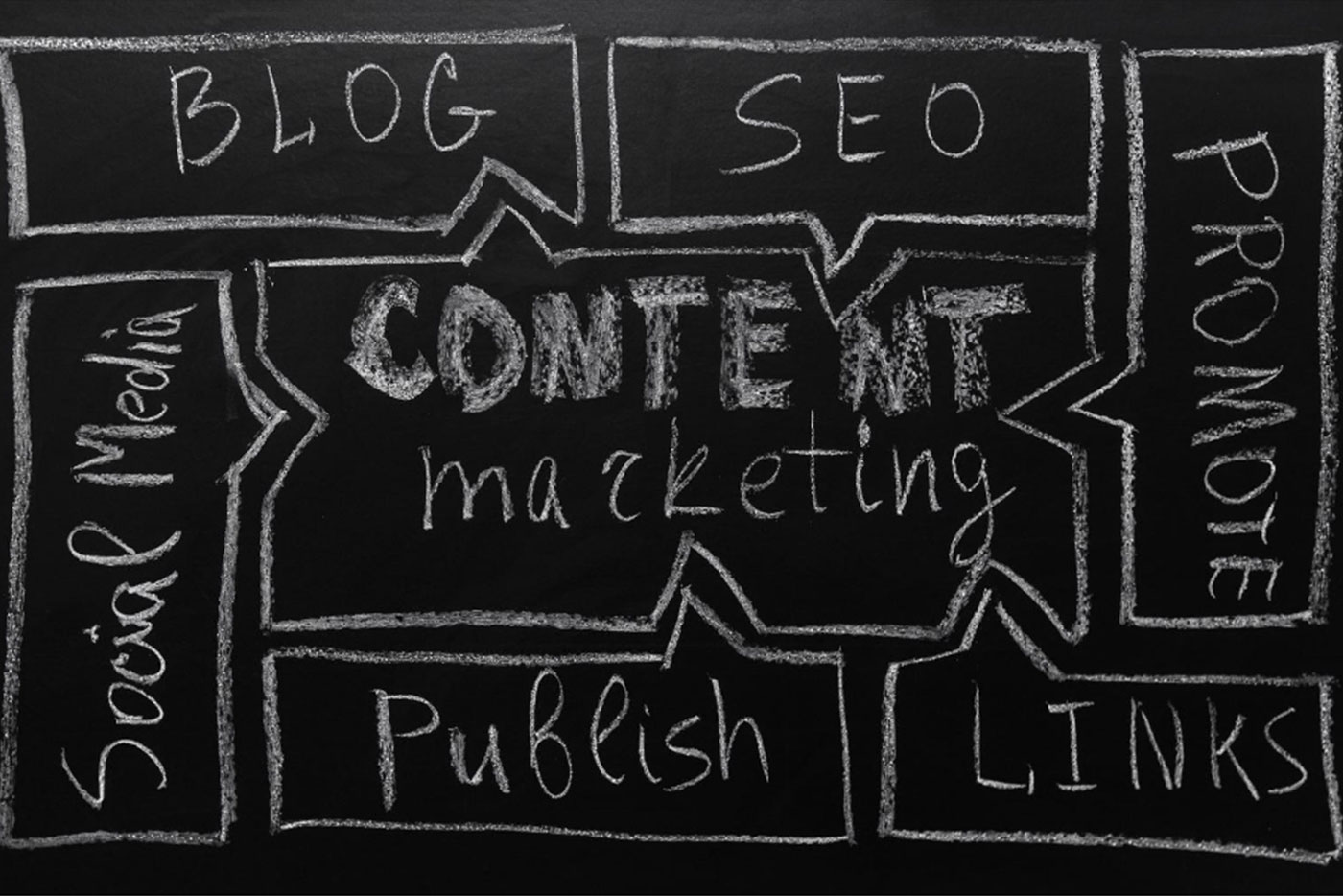What is Content Marketing?
Many people are unclear about the exact content marketing definition, and with good reason. But to truly understand what it is, you need to know about Inbound Marketing, because content marketing is a huge part of that.
In simple terms, you can replace the word “marketing” with the word “advertising”. You know, for instance, that television commercials are a form of advertising. So are advertisements in magazines and on billboards. All of that is “outbound” marketing, which is a scattershot method of making your product known to as many people as possible, in the hope that some of them will become customers.
Inbound marketing is a more targeted approach. It tries to lure as many people as possible to your product who might actually need it, in hopes of increasing the chance that you can convert them into buyers. And the most common way to do that is with content.
Instead of just dribbling out information about your products in advertisements and commercials, content is a way for you to provide more in depth information to potential customers. You are no longer restricted to coming up with snappy taglines or trying to squeeze all the benefits people might get from your products into a 30 second spot.
There are now multiple ways to get this information to your possible buyers. You could have blog posts, case studies or white papers right on your website. You could even have downloadable material, such as e-books.
Basically, content marketing is a highly focused approach to luring a very clearly defined demographic – people who are most likely to want or need your product, and convincing them to pay for it. Instead of just blasting a list of all the features you think are attractive, you are providing thoughtful and detailed information that is useful in and of itself.
FACT: Digital content marketing stats show that 72% of marketers say content marketing increases engagement. In addition, 72% say it has increased the number of leads. (Optinmonster)
What Is Content Marketing in Digital Marketing?
Search engines and social media have created an entirely new space to promote goods and services. When used to their best advantage, they can have an amazing impact on profitability. And the best part is that they have leveled the playing field, so small businesses can be every bit as effective as huge conglomerates, sometimes even more so.
Social media gives all businesses the same opportunity to engage with existing and potential customers. Posting on Facebook, Twitter, Instagram and Pinterest can attract attention to your company, and provide links to pages on your website. So building a following on as many as you can is quite a worthwhile task. However, there are multiple reasons to be careful. Here are just a few:
- Time wasting – There are specific things you need to do in order to build a significant following on each of the different social media platforms. One of the most important is to post regularly and frequently. If you can’t do so, then it’s a waste of time to do it at all. It can also use up a lot of time coming up with what to post, and then posting it. But, because the potential gains can be huge, it may be worth hiring someone part-time to handle this particular chore.
- Reputation – There are so many stories these days of enormous publicly traded companies getting into very deep hot water because of something that was posted to their account. It may be in reference to current events, or it might be a response to a complaint. In either case, the damaging post could go viral and reach tens of thousands of people who may now think badly of your company, even if they had never heard it before.
- Relationships – There is a definite line that should not be crossed when engaging with others on social media. You don’t want to seem overly familiar, which can be very off-putting. On the other hand, your social media presence should probably be your warmest and most personal relationship with your base. There is a real middle ground between the two, and you need to find it.
Search engines are the biggest reason content marketing even exists, and Google is the most important of these, because it has the largest share. When you see the phrase “content marketing”, the acronym “SEO” is usually nearby. It stands for Search Engine Optimization, and your content needs to be created with that in mind.
What it means is that your content will show up in the first few pages of results when someone searches for words or phrases related to your product. This is supremely important, because those people are your potential customers, so you want them to find you. The visitors who get to your website by clicking on links in search results are referred to as “organic” traffic, and they are desirable because they are free to acquire, as opposed to buying ads that will show up on the search results pages.
A related term is “keyword optimization”, but that is really just one of several parts that make up SEO. There are free tools you can use to determine not only which words and phrases related to your products are most often searched for each month, but also what the competition is for them from people who want to buy ads for them. Google Keyword Planner is one of these. For example look at the keywords that show up when the word coffee is searched:
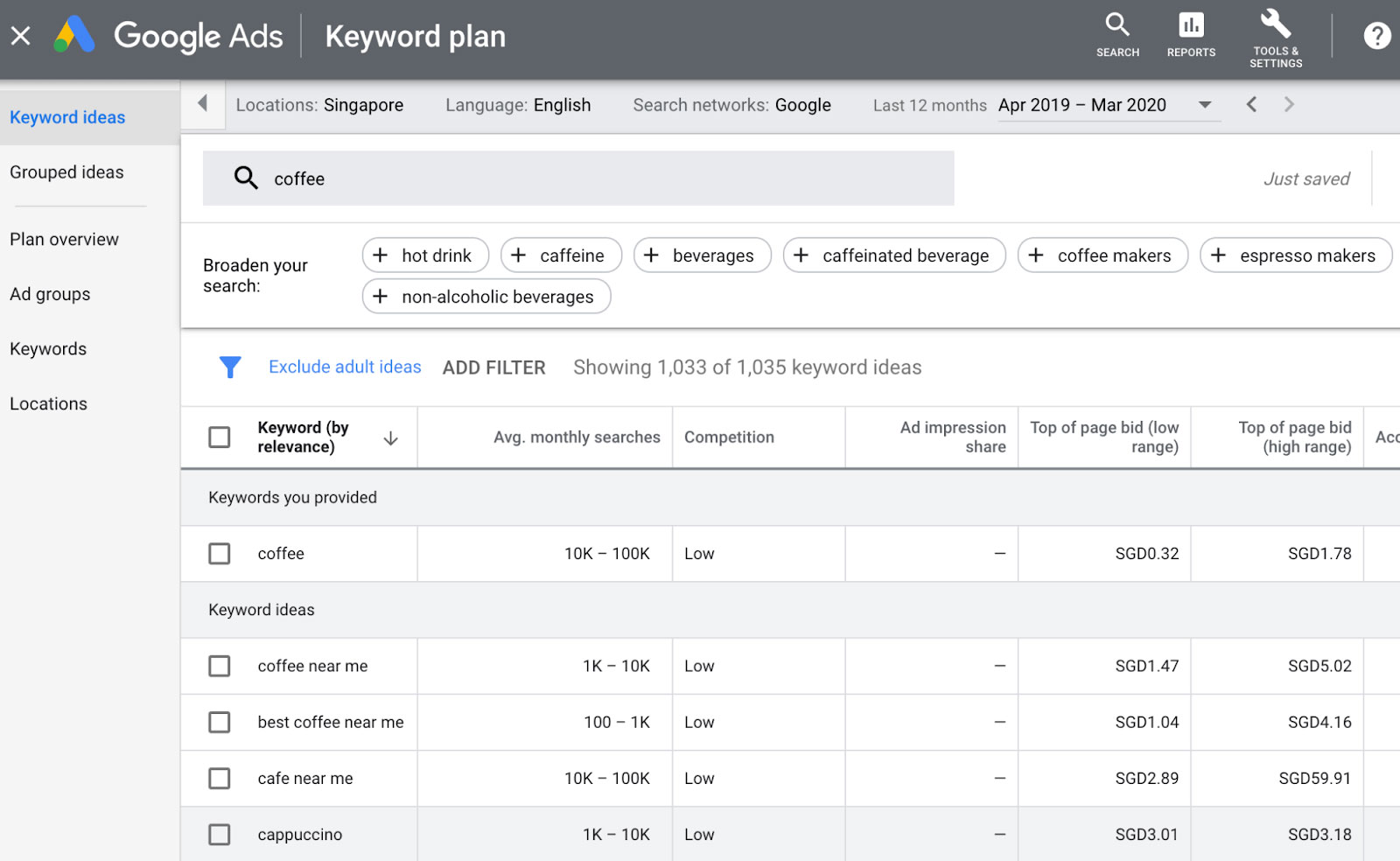
It’s useful information to have, but all of the search engines will tell you that keyword optimization isn’t even all that necessary. They say that all you really need is content that is genuinely useful. That means it will contain information that people will find useful. The implication is that important keywords will occur naturally, because they are necessary for writing about your products.
This is what is meant by the commonly used phrase, “Content is King.” It is another way that small businesses are on the same level as the big conglomerates, because it’s just as easy for them to create content that will generate organic traffic to their websites.
Content isn’t the only part of search engine optimization. There are other factors that have to do with pieces of your website. But it is a crucial part, and all businesses with an online presence should have some kind of content marketing in place, as well as a good strategy for it.
You Might Also Like
So, essentially, the answer to what is content marketing in digital marketing is that it’s a combination of social media and content provided by your company that is useful to your potential buyers. And, by the way, it does not have to be just written content. People browsing online love visual content, so you can use infographics, photos, videos, webinars and more.
Improve your content marketing + SEO in 60 seconds!
Diib uses the power of big data to help you quickly and easily increase your traffic and rankings. We’ll even let you know if you already deserve to rank higher for certain keywords.
- Easy-to-use automated SEO tool
- Get new content ideas and review existing content
- Checks for content localization
- SEO optimized content
- Built-in benchmarking and competitor analysis
- Over 500,000k global members
Used by over 500k companies and organizations:
Syncs with 
What Are the Main Types of Content Marketing
There are so many different ones to choose from, and new one seem to pop up every day, but the main types of content marketing these days are:
- Blog Posts – Blogs are one of the first ways content marketing became important, and many companies now have blogs on their website. Again, any company – big or small – can create a blog. So this platform is very definitely a level playing form. Here is an example of a the Diib blog:
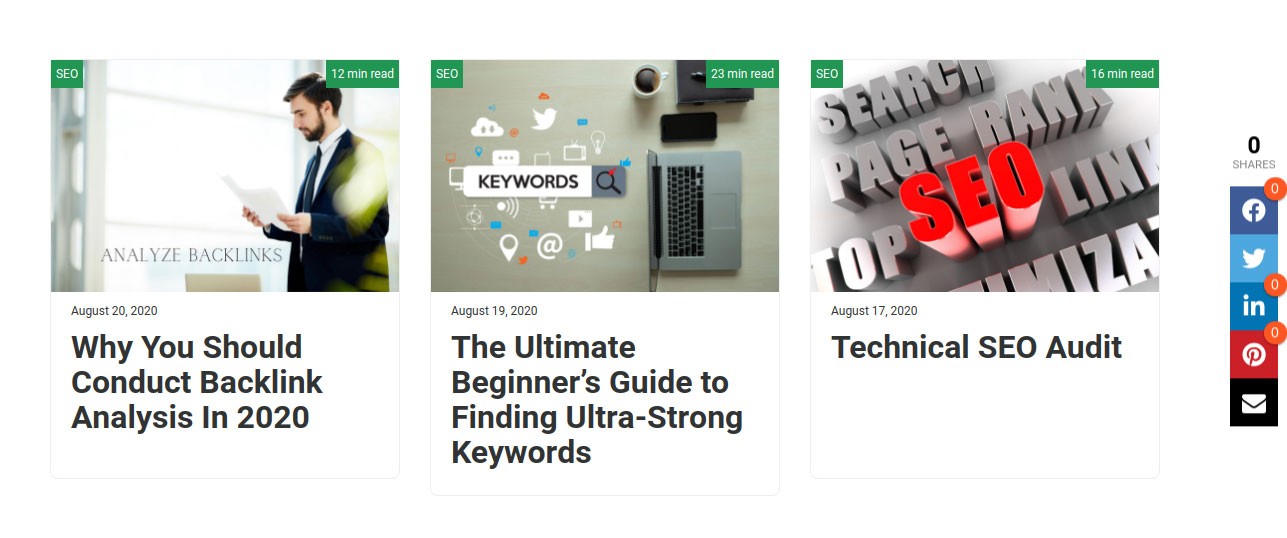
- Social Media Posts – As mentioned above, social media can have a significant impact on profitability when done right. This is the number one way of engaging personally with your existing and potential customers. Good relationships are an enormous factor in building loyalty and increasing customer retention. Social media is one the absolute best way of creating them. Another example:
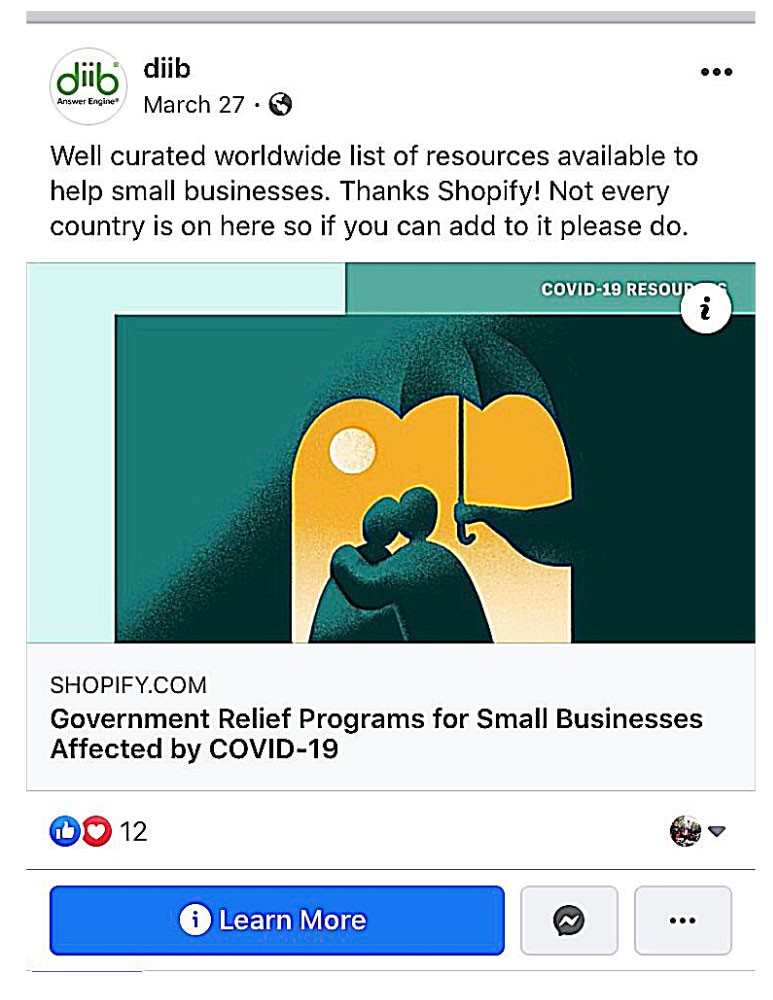
- E-mails – E-mail is not dead, and it is not outdated as an effective marketing tool, far from it. In fact, one of the most powerful marketing assets you can possess is a strong email list. Many companies create some kind of free content or product to give away in return for a website visitor furnishing their email address. Since every email offers a chance to unsubscribe, those who choose to keep receiving your emails are usually demonstrating a strong interest in your product, so they are your most likely buyers. Effective emails include notification of new or updated products, as well as direct mail messages, which are lengthy in-depth sales letters.
FACT: One of the most effective ways to promote your content is to use email marketing. According to Smart Insights, it has an ROI of $40 for every dollar spent. (Optinmonster)
- Landing pages – These are stand-alone web pages that have a specific purpose, often just to get a visitor’s e-mail address for your mailing list. The idea is that you spread links to this page around, in order to get one particular response, and that’s it. Sometimes, that will generate another page or two – a thank you page, perhaps, then an offer to buy something. But there are no links from a landing page to the rest of your website, because you do not want the visitor to leave without the desired response.
- Videos – Almost everyone seems to enjoy watching interesting videos. If your business lends itself to this medium, you could even consider starting your own YouTube channel, because many businesses and individuals have done this with great success.
FACT: Video is trusted by 40% of millennials and half of those aged 18-34 would stop what they’re doing to watch a new video. (Optinmonster)
- Podcasts – This is one of the newer forms of content, but it caught on very quickly. It’s somewhat reminiscent of the days when radio was the main form of media. A podcast could be one person talking about something in great detail, two people participating in an interview or multiple people having a round-table discussion. No matter which, podcasts have become hugely popular and are definitely worth considering.
- E-books – E-books have been around for a very long time, and they are often used as the free content given away in return for a website visitor’s e-mail address. They are particularly useful for companies that are in the business of selling digital content, such as courses or other e-books.
- Free Webinars – The technology finally exists to make webinars painless. Not only are internet speeds up to the challenge of streaming live video without glitches – usually, but presenters are now able to actually engage with their audience in real time. They can answer questions and see feedback. Best of all, the webinars can be recorded to be watched later. These are extremely popular, and e-mails inviting people to register for them are often answered immediately.
There are so many more useful tools you can use: presentations, infographics, case studies, white papers, even free apps and much more. Everyone, really, should be able to find multiple methods that they are comfortable with. And the good thing is that, much of the time, you can just create the content and leave it online. It will continue to help you generate revenue until the content itself is outdated, or no longer useful.
What is a Good Content Marketing Strategy?
The best content marketing strategies combine the use of two relatively new techniques: buyer personas and funnels.
Buyer Personas
Buyer personas represent your different customers. In other words, exactly who needs your product? It is very likely more than one type of person, and you should identify them all.
Picture it this way: there is a group of 100 people, but only 25 of them have any kind of need or desire for your product, or know someone who does. They are the only ones you need visiting your website, so there is no need to try and engage the other 75 people, there is very little likelihood that they will be willing to part with their money.
So your content should be created with the other 25 people in mind. But they are not necessarily all the same demographic. So you need to identify each type, and create content aimed at them in particular. Here is an example of social media demographics on the Diib® website:
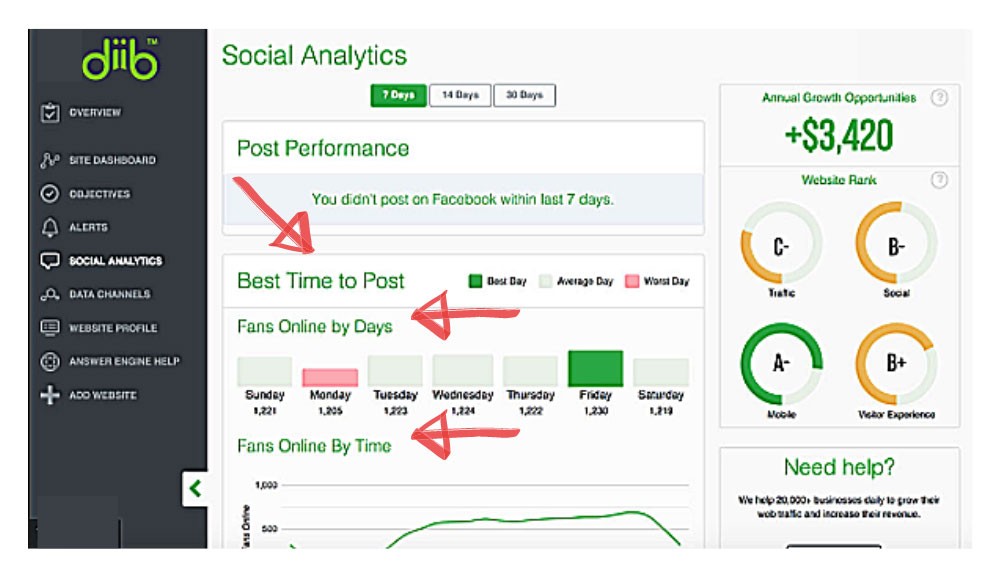
For instance, say you sell a cream that soothes aching muscles. It will almost certainly be of interest to athletes. People who work in physically demanding jobs are also good prospects. And not only are elderly people very likely to benefit from the cream, but the family members who care for them will be interested in it, as well.
All of these people are your buyer personas. You should have photos to represent them, and create backstories for them so that they seem like real people to you. Then make sure that you have content which speaks to each of them.
We hope that you found this article useful.
If you want to know more interesting about your site health, get personal recommendations and alerts, scan your website by Diib. It only takes 60 seconds.
Sales Funnels
While relatively new, thanks to advancement in data mining technology, the best content marketing strategy is based on what is often referred to as “sales funnels”. Here is an example of a good website with funnel that promotes Henson Trusts. It’s just a new way of conceptualizing what was previously referred to as the buyer’s journey. Here is a graphic of this sales funnel:
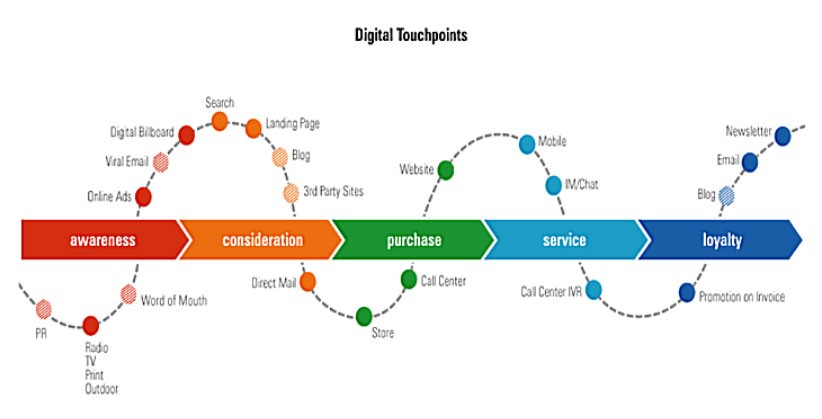
Think of your prospects all dropping into your website through the big opening of a funnel. The first stage is enticing them to enter, then you have to move them through until you’ve narrowed them down to only the buyers entering the narrowest part.
Where basic content marketing increases your odds of making a sale by bringing you customers who were more likely to buy your product, sales funnels can now identify exactly where they are in the decision making process. This means you can create content that targets your buyer persona at every stage of the buying process. Here are some suggestions and possibilities for you to consider.
AWARENESS
The first stage of your sales funnel is used to generate awareness that your product exists. This is where you need content that will initially attract prospects to your website. What you have to keep in mind is that, at this stage, people have identified a problem they have – like aching muscles – and are looking for the best method of solving it.
The content for this stage is all about information – not about your product, but about their problem. You want to have blog posts about what causes muscles to begin aching and how to prevent it. You can have social media posts linking to articles about new studies. Your prospects should begin to see you as a trusted source of information.
Infographics, videos and infographics work well here. Giving away a free e-book in return for an e-mail address makes for a good landing page. Even the right kind of paid ads are helpful.
EVALUATION
With the help of your information, your prospects have learned all they can about their problem. Now they have to determine what solution will give them the best results. Will it be pills, creams, physical therapy?
Comparison guides will be much appreciated at this stage, listing the pros and cons of each method, and what each is best for. Webinars can make a personal connection, letting them ask questions. Case studies and more social media links will go a long way to establishing you as an authority.
DECISION
Your potential customers have decided on a specific solution, now they just need to decide whose product to choose. If you’ve gotten their email address, now is the time for that direct mail message. Live chats and loyalty programs can accelerate the relationship. And they will be delighted by a free sample.
Diib®: Your Content Marketing Experts!
If you have been unclear about the exact content marketing definition, and how you can benefit by developing an effective content marketing strategy, then we hope you have found this article helpful and that we have answered those questions for you. Diib growth experts have worked with thousands of companies in fine tuning their content marketing strategy. Here are ways our software can help:
- Use the keyword and backlink competitor research tools to find what keywords your competitors are ranking for and create content around those keywords.
- Use Diib® to understand key metrics, like bounce rate and returning visitors, for your specific content.
- See how your Facebook page followers like content you share.
- Enjoy a monthly call with a Diib growth expert.
Click here for a free 60 second site analysis or call 800-303-3510 to chat with a Growth Expert today!
FAQ’s
The basic definition of content marketing is a strategic approach designed to create and distribute value, in the form of consistent and relevant content, to your audience. This, in turn, converts your audience to customers.
Content marketing includes: educational and scholarly articles, videos, entertainment, webinars and e-books that help to answer specific questions people have and are searching for. It’s the best way to turn your product, no matter how common, into something that is not like everyone else’s.
When you look at the data and statistics, you’ll see the overwhelming answer is yes. Content marketing is one of the sure fire methods to improve your website ranking and establish your brand as an authority.
This time frame can vary according to your business and specific circumstances. That being said, a strong marketing campaign for a small to medium sized business can take anywhere from 6-9 months to yield significant results.
A social media content campaign can be a bit more involved than your average content marketing campaign. In general, this takes anywhere from 6-12 months. With the caveat that you should be actively engaged and consistent in promoting your social media channel.
